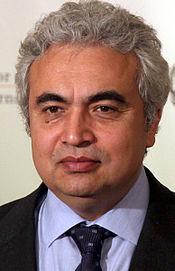[youtube]nZHGwPzgeqc[/youtube]
Here’s a high quality video of Jim Hansen’s talk at the University of Canterbury last month (excellent work by the audiovisual team at UC). Well worth watching, if only because it provides a succinct summary of Hansen’s current thinking. As Dr. Chuck Kutscher of the National Renewable Energy Laboratory in the US said:
If you want to know the scientific consensus on global warming, read the reports by the Intergovernmental Panel on Climate Change. But if you want to know what the consensus will be ten years from now, read Jim Hansen’s work.
Hansen has also published his open letter to John Key (at HT here), with added observations on his time in New Zealand. I particularly enjoyed his heartfelt reference (in a footnote) to his minder, former Green Party leader Jeanette Fitzsimons:
[…] slave-driver Jeanette Fitzsimons unceremoniously routing me out of bed at 6 or 7 AM every day to get moving to the next town – not exactly a case of sipping piña colada on a beach.
See also: R0B at The Standard draws attention to a podcast of Hansen’s talk at Otago University, who notes that he described his meeting with Environment Minister Nick Smith as “a very unpleasant discussion”. With the recent news that John Key has given his support to lignite mining in Southland, it’s clear that the disconnect between reality and the New Zealand government is growing ever greater.
[Climate Show interview with Jim Hansen here. Hat tip to Jason Box for the Kutscher quote.]

 Another report this week drives home the message that the world’s poorer people are going to suffer the early and potentially devastating effects of climate change. The report is the work of the
Another report this week drives home the message that the world’s poorer people are going to suffer the early and potentially devastating effects of climate change. The report is the work of the  The Guardian, with the exception of the
The Guardian, with the exception of the  It was good to see Michael Downie, the general manager of Phillips Lighting,
It was good to see Michael Downie, the general manager of Phillips Lighting,